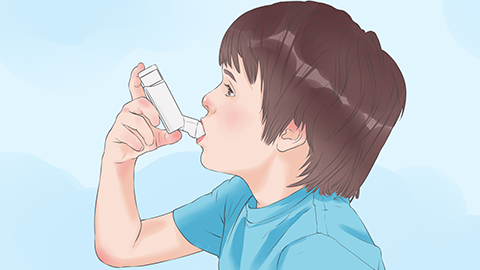What causes a sudden feeling of shortness of breath?
Generally, sudden shortness of breath may be caused by excessive emotional tension, increased oxygen consumption after strenuous exercise, acute bronchial asthma attacks, acute left heart failure, pneumothorax, and other reasons. If symptoms persist or worsen, it is recommended to seek timely treatment at a reputable hospital. Detailed analysis is as follows:
1. Excessive Emotional Tension
During intense emotional fluctuations, the sympathetic nervous system becomes excited, increasing and shallowing the respiratory rate, which leads to imbalance between pulmonary ventilation and gas exchange, causing shortness of breath. At this time, one should immediately leave the stimulating environment, find a quiet place to sit down, and perform slow deep breathing, inhaling through the nose and exhaling through the mouth, repeating several times to calm the emotions.
2. Increased Oxygen Consumption After Strenuous Exercise
During strenuous exercise, the body's oxygen consumption rises sharply, increasing the burden on the heart and lungs, and respiration cannot meet the demand in time, resulting in shortness of breath. One should immediately stop exercising, rest in place, drink warm water appropriately, adjust breathing rhythm using abdominal breathing, and symptoms usually subside after resting for 10-20 minutes.

3. Acute Bronchial Asthma Attack
After exposure to allergens or cold air, airway smooth muscle spasms and mucosal edema occur, narrowing the airway and obstructing airflow, causing shortness of breath. Under a doctor's guidance, use salbutamol aerosol to relieve spasms, combined with budesonide-formoterol powder inhaler and montelukast sodium tablets to control inflammation, and avoid allergens simultaneously.
4. Acute Left Heart Failure
When cardiac pumping function suddenly declines, pulmonary circulation congestion occurs, increasing exudate in the alveoli and affecting gas exchange, leading to shortness of breath. One should immediately adopt a sitting position with legs hanging down to reduce venous return. Under a doctor's guidance, use furosemide injection, nitroglycerin tablets, digoxin tablets, and other medications to improve symptoms.
5. Pneumothorax
When alveoli rupture and gas enters the pleural cavity, the lung tissue is compressed and its expansion becomes restricted, causing shortness of breath, often accompanied by chest pain. Timely medical attention is needed; minor pneumothorax can be absorbed with bed rest, while major pneumothorax requires closed thoracic drainage. Cefradine capsules may also be used to prevent infection.
In daily life, one should maintain emotional stability and avoid excessive fatigue; engage in appropriate physical exercise to enhance cardiopulmonary function; patients with underlying diseases should take medication regularly and undergo periodic follow-up examinations; if sudden shortness of breath occurs with chest pain, confusion, or other symptoms, call emergency services immediately.




